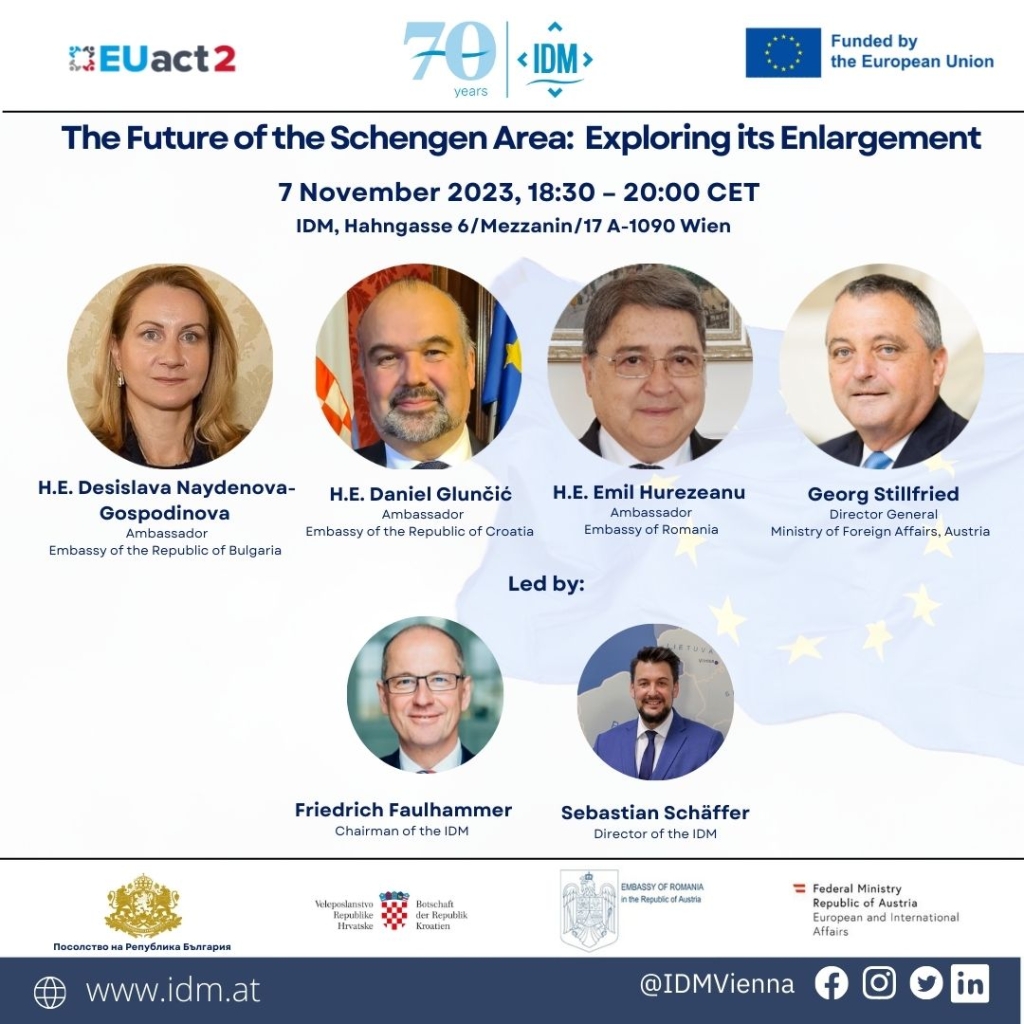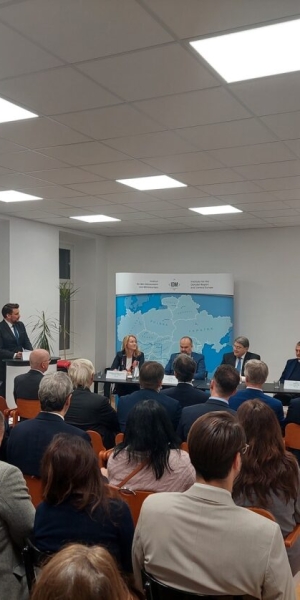The Future of the Schengen Area: Exploring its Enlargement

The Schengen area is one of the greatest achievements of European integration. But the area of free movement survives only when trust and solidarity prevail over conjunctural national interests among member states. While Croatia was admitted to the Schengen area as of 1st January 2023, Romania and Bulgaria – both meeting the requirements – are still waiting for their accession. The European Parliament and the overwhelming majority of member states repeatedly stressed the relevance of concluding the enlargement of the Schengen area by the end of 2023 and in her recent State of the European Union address, also President of the European Commission Ursula von der Leyen emphasized the importance of Bulgaria and Romania joining the Schengen zone.
This panel discussed the prospects for enlarging the Schengen zone after the EU Justice and Home Affairs Council, scheduled for October 2023. It discussed the impact of denying Schengen accession on the population of Bulgaria and Romania – especially on young people. Additionally, it examined the current challenges in the zone, such as the increased flows of migrants and refugees and border controls inside the zone.
The discussion covered the following aspects:
- How does the accession of Romania and Bulgaria to the Schengen zone contribute to strengthening, rather than weakening, the overall security framework in Europe?
- Between concerns about migration and a labour market relying consistently on Romanian and Bulgarian care workers – how can some member states’ veto be comprehended, and what could Bucharest and Sofia do on the diplomatic front to change the position of the blocking MS?
- Could, if it would be the case, another veto against the Schengen accession of Romania and Bulgaria fuel anti-European sentiments in the countries, especially among young voters?
The goal of the event is to build and enhance engagement and participation of EU citizens and deepen knowledge and awareness about the EU among citizens.
The discussion is implemented in a framework EUact2-“Towards Democratic and Inclusive Europe: EP Elections and Active Citizens Participation and Contribution” project that aims to build a sustained level of citizens’ activism, especially among young people, so their voices are better represented in the European policymaking. It is funded by the European Union.




